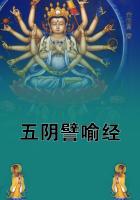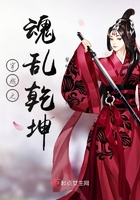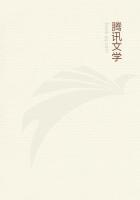"The first motive of the Queen's strong dislike to the Duc de Lauzun sprang from Her Majesty's attachment to the Duchesse d'Orleans, whom she really loved. She was greatly displeased at the injury inflicted upon her valued friend by De Lauzun, in estranging the affection of the Duc d'Orleans from his wife by introducing him to depraved society. Among the associates to which this connection led the Duc d'Orleans were a certain Madame Duthee and Madame Buffon.
"When De Lauzun, after having been expelled from the drawing-room of the Queen for his insolent presumption,--[The allusion here is to the affair of the heron plume.]-- meeting with coolness at the King's levee, sought to cover his disgrace by appearing at the assemblies of the Duchesse de Polignac, Her Grace was too sincerely the friend of her Sovereign and benefactress not to perceive the drift of his conduct. She consequently signified to the self-sufficient coxcomb that her assemblies were not open to the public. Being thus shut out from Their Majesties, and, as a natural result, excluded from the most brilliant societies of Paris, De Lauzun, from a most diabolical spirit of revenge, joined the nefarious party which had succeeded in poisoning the mind of the Duc d'Orleans, and from the hordes of which, like the burning lava from Etna, issued calumnies which swept the most virtuous and innocent victims that ever breathed to their destruction!
"Among the Queen's favourites, and those most in request at the De Polignac parties, was the good Lady Spencer, with whom I became most intimately acquainted when I first went to England; and from whom, as well as from her two charming daughters, the Duchess of Devonshire and Lady Duncannon, since Lady Besborough, I received the greatest marks of cordial hospitality. In consequence, when her ladyship came to France, I hastened to present her to the Queen. Her Majesty, taking a great liking to the amiable Englishwoman, and wishing to profit by her private conversations and society, gave orders that Lady Spencer should pass to her private closet whenever she came to Versailles, without the formal ceremony of waiting in the antechamber to be announced.
"One day, Her Majesty, Lady Spencer, and myself were observing the difficulty there was in acquiring a correct pronunciation of the English language, when Lady Spencer remarked that it only required a little attention.
"'I beg your pardon,' said the Queen, 'that's not all, because there are many things you do not call by their proper names, as they are in the dictionary.'
"'Pray what are they, please Your Majesty?'
"'Well, I will give you an instance. For example, 'les culottes'--what do you call them?'
"'Small clothes,' replied her ladyship.
"'Ma foi! how can they be called small clothes for one large man? Now Ido look in the dictionary, and I find, for the word culottes--breeches.'
"'Oh, please Your Majesty, we never call them by that name in England.'
"'Voila done, j'ai raison!'
"'We say "inexpressibles"!'
"'Ah, c'est mieux! Dat do please me ver much better. Il y a du bon sens la dedans. C'est une autre chose!'
"In the midst of this curious dialogue, in came the Duke of Dorset, Lord Edward Dillon, Count Fersen, and several English gentlemen, who, as they were going to the King's hunt, were all dressed in new buckskin breeches.
"'I do not like,' exclaimed the Queen to them, dem yellow irresistibles!'
"Lady Spencer nearly fainted. 'Vat make you so frightful, my dear lady?' said the Queen to her ladyship, who was covering her face with her hands.
'I am terrified at Your Majesty's mistake'--'Comment? did you no tell me just now, dat in England de lady call les culottes "irresistibles"?'--'Oh, mercy! I never could have made such a mistake, as to have applied to that part of the male dress such a word. I said, please Your Majesty, inexpressibles.'
"On this the gentlemen all laughed most heartily.
"'Vell, vell,' replied the Queen, 'do, my dear lady, discompose yourself.
I vill no more call de breeches irresistibles, but say small clothes, if even elles sont upon a giant!'
"At the repetition of the naughty word breeches, poor Lady Spencer's English delicacy quite overcame her. Forgetting where she was, and also the company she was in, she ran from the room with her cross stick in her hand, ready to lay it on the shoulders of any one who should attempt to obstruct her passage, flew into her carriage, and drove off full speed, as if fearful of being contaminated,--all to the no small amusement of the male guests.
"Her Majesty and I laughed till the very tears ran down our cheeks. The Duke of Dorset, to keep up the joke, said there really were some counties in England where they called 'culottes irresistibles.
"Now that I am upon the subject of England, and the peace of 1783, which brought such throngs of English over to France, there occurs to me a circumstance, relating to the treaty of commerce signed at that time, which exhibits the Comte de Vergennes to some advantage; and with that let me dismiss the topic.
"The Comte de Vergennes, was one of the most distinguished Ministers of France. I was intimately acquainted with him. His general character for uprightness prompted his Sovereign to govern in a manner congenial to his own goodness of heart, which was certainly most for the advantage of his subjects. Vergennes cautioned Louis against the hypocritical adulations of his privileged courtiers. The Count had been schooled in State policy by the great Venetian senator, Francis Foscari, the subtlest politician of his age, whom he consulted during his life on every important matter;and he was not very easily to be deceived.














